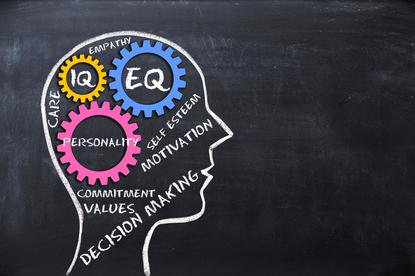How emotional intelligence is changing the face of engineering
- 23 October, 2018 12:50

To spearhead the advent of driverless cars, Holden recently announced it would invest $120 million annually in Australian engineering and design. This staggering commitment includes expanding the company’s workforce by 150 engineers in Melbourne alone.
Impressive, yes. But why put engineers at the helm of these mass evolutions, as opposed to artificial intelligence (AI) or location technology experts who may seem more suited?
It’s the inherent adaptability and problem-solving focus of the engineering profession that allows us to contribute value in so many different sectors.
In fact, local engineers are currently changing the world in myriad fields – from a young Aboriginal teenager who is tackling water contamination in rural Australia to a group of women at the University of Melbourne who are revolutionising global medicine with the bionic eye.
These experts probably aren’t succeeding solely based on maths and physics. It’s their diverse perspectives, unique ideas and emotional intelligence that propel them forward. And in a world of increasing automation and robotics, retaining and diversifying those inherent human qualities in engineering is key.
Metal versus mental: What does it really take?
“We are working in a high-wage country,” notes Leigh Clifford AO, the Chair of Qantas Airways and an engineer by training. “There is nothing wrong with that, but it does mean that at some level, intellectual property (IP) provides a greater input than the metal bashing. We’re not going to find ourselves making wheelbarrows for the world, but we will and are contributing a lot of high-tech, high-IP solutions.”
For this to work, a focus on diversity and the individual personality of each engineer is essential, over and above the nuts and bolts.
In fact, Accenture’s Randy Wandermacher recently noted that employers are starting to favour graduates who don’t “reduce the world to ones and zeros. In the digital and robotics age we still require STEM graduates. But what we also want in graduates is curiosity, resilience, judgement and adaptivity.”
What other EI-driven personal traits make young engineering graduates and seasoned engineers alike ready to solve the problems of the world?
1. The ability to recognise your strengths
Leigh was telling me about a fellow student of his at the University of Melbourne – very good at English, but lousy at maths. Although creativity is crucial to engineering, a lack of quantitative analysis skills would have made it hard for him to progress through this career – because good engineers need to analyse and survey all the facts before making a decision. “Instead, that friend of mine became a famous songwriter,” says Leigh.
“Play to your strengths.”
2. An enquiring mind
Yes, I liked maths and physics, but I wanted to solve problems that people haven’t attempted before. This adventurous mindset needs to remain throughout your career. Otherwise, stagnation can be detrimental – as seen in the recent Italian bridge collapse, where negligence caused 39 deaths. Even when you’re working in teams, and especially in senior management, you’ve got to introduce the what if – what if we’ve got this wrong?
3. The ability to take calculated risks
If we’re jumping into the unknown, we won’t have solid facts about how likely it is we will succeed. But calculated risk taking still requires a probability-driven mindset. Weighing up the implications of failure is imperative, before investing money and time in something that’s doomed to fail.
4. An affinity for endless learning
Old jobs are fast being superceded by technology. In the span of Leigh’s career alone, engineers have gone from using hand-written 10-figure logarithms to pressing a few buttons on a few tools. “I suspect that much of the sector’s basic principles will always remain the same,” he says, “but the computing capabilities available to engineers are evolving quicker than we could have ever imagined. And while the momentum of this change will certainly propel innovation and job creation, it’s going to need new skillsets.”
The times are a’changing: Perceptions must too
The future of engineering is everywhere. I might not have the skills that are required to be a doctor, but as an engineer, I do have the skills that can be used to aid doctors in creating medical technologies. Similarly, Leigh Clifford didn’t study engineering with the intention to chair Australia’s biggest airline. With adaptable skillsets, there’s a huge impact that we can have in health, financial areas, banking, mining, transport and agriculture too.
But if these opportunities are to come to fruition, we need to improve diversity in STEM - encouraging women and people from all cultural backgrounds to enter engineering careers. After all, studies have shown that “people with different experiences and different learning will have different ways of solving problems… leading to creativity and innovation.”
In fact, if we’re talking about emotional intelligence as a key engineering attribute, a variety of ability tests and studies have found that women actually have higher emotional intelligence ability than men – better perception, facilitation, understanding, management, social cognition and empathy.
But even in my career, I’ve been told that I shouldn't be an engineer, because “women can’t be engineers.” Improving diversity requires changing perceptions about what it really means to work in our field.
Niki Robinson, president of the South Australian Division of Engineers Australia, recently noted that “people think we’re either constructing roads or bridges. There’s no sense of, if I became a biomedical engineer, I could help someone who can’t talk.”
By communicating the ground-breaking work already being undertaken by engineers from all different backgrounds, perhaps we can improve diversity in engineering, and retain meaningful work in spite of the robots taking over (robots who we, admittedly, often helped to create).
Postdoctoral researcher Kerry Halupka is the latest guest featured the new University of Melbourne podcast series, Expert Hack. When she’s not sharing her expertise on the air, she’s developing cutting-edge artificial intelligence solutions in biomedicine.

